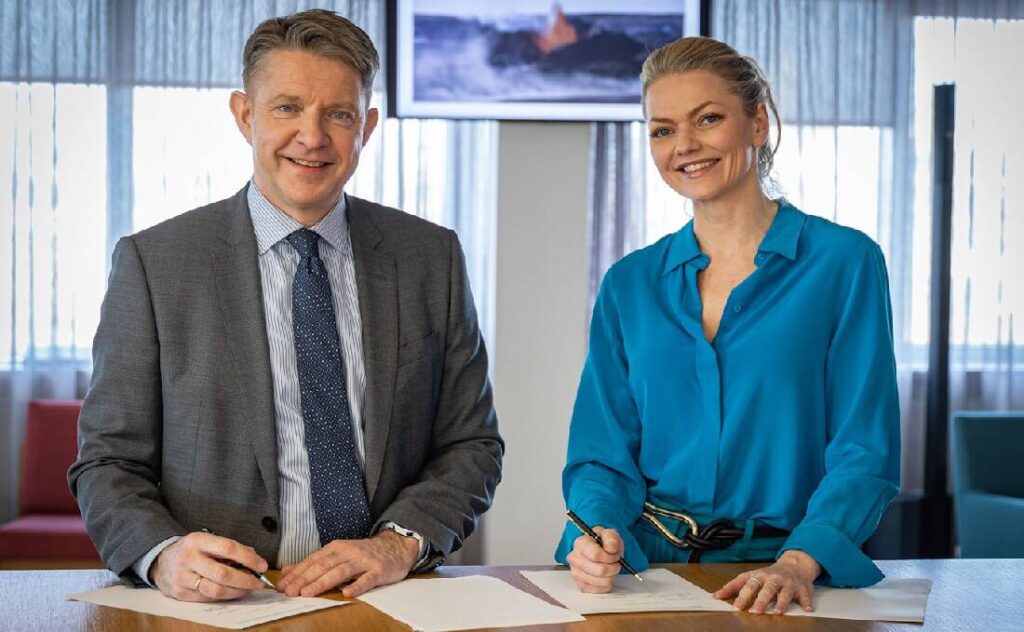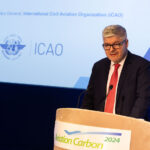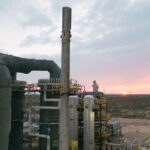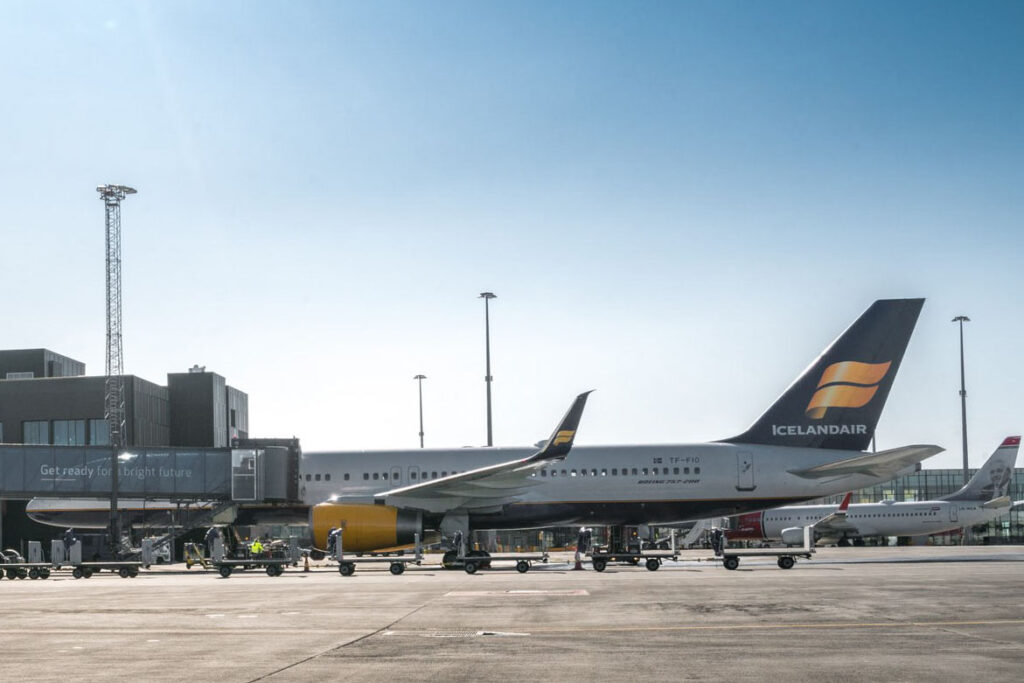Icelandair has signed a Memorandum of Understanding with Icelandic hydrogen development company IdunnH2 for the supply of 45,000 tonnes of sustainable aviation fuel produced from green hydrogen from 2028 onwards. IdunnH2 is planning a commercial-scale synthetic fuel facility to be located near Keflavik International Airport that will take 100% renewable energy through long-term agreements with local power producers. The company says Iceland is an ideal location for power-intensive e-fuel production as the country’s power is 100% renewable and competitively priced. With Iceland’s ambition to achieve carbon neutrality before 2040 and to cut GHG emissions by 40% by 2030, IdunnH2 says the country can be a global leader in e-fuels. The supply agreement with Icelandair would account for around a 10% annual reduction of carbon emissions from the airline’s international network, which has set targets of a 50% reduction in carbon emissions per operational ton kilometre by 2030 compared to 2019 and reach net zero emissions by 2050.
Icelandair has invested in a fleet of new-generation, more fuel-efficient Boeing 737 MAX aircraft but recognises a combination of further measures will be required to reach its targets.
“It is going to be the utilisation of sustainable aviation fuels that will play an important role in international aviation over the next years,” said CEO Bogi Nils Bogason. “The challenge is that there is not enough production in the world today, limiting supply. Entering into this MoU demonstrates we want to support pioneers working on the development of SAF in Iceland.”
E-fuel – or e-kerosene – is a type of SAF produced by combining green hydrogen made from renewable power with existing CO2 from an industrial source or the atmosphere. Under the EU’s proposed SAF blending mandate, an obligation would be placed on fuel suppliers to include an e-fuel content of 0.7% by 2030 in jet fuel uplifted from EU airports, although politicians would like a mandated level of e-fuel brought forward to an earlier date.
IdunnH2 was founded in 2020 by two former executives formerly with the National Power Company of Iceland and is privately held by Icelandic investors from the power, aviation and construction sectors. The company says its 300 MW facility is the largest known e-fuel project currently under development in Iceland. Water will be supplied by local utility HS Veitur and power will be sourced from multiple suppliers under long-term power purchase agreements (PPAs). According to IdunnH2, feasibility was established in September 2022 by Cambridge, UK-based low-carbon consultancy Element Energy, with support from Mannvit Consulting Engineers.
The site is in a pre-zoned harbour area with good connections to markets and important existing infrastructure. The project is being developed with municipal authorities, airport operator Isavia, the Keflavik Airport Development Authority and airlines based at Keflavik.
“Our project in Helguvik Harbour will lead to verifiable emissions reductions, added energy security and it supports the local economy,” commented Audur Nanna Baldvinsdóttir, CEO of IdunnH2. “We’ve worked to partner with local stakeholders to establish the benefits of having such a facility in Iceland, and we are pleased that our largest carrier is prepared to support us by alleviating merchant risk.
“Taking bold steps now is imperative to reach Iceland’s goal for carbon neutrality by 2040 and IdunnH2 wants to harness Icelandic ingenuity to meet those goals and shift our long-term position as an importer of fuels. This MoU is an important step towards realising that vision.”

Top photo (Isavia): Keflavik Airport
Bottom photo: Bogi Nils Bogason of Icelandair and Audur Nanna Baldvinsdóttir of IdunnH2 sign the MoU
















More News & Features
Progress on decarbonising the airline sector has been slow this year, says IATA chief
EASA releases status report on Europe’s SAF production and readiness to meet blending targets
New partnerships formed to drive e-SAF production in Nordic markets
IAG continues to go big on e-SAF as it inks 10-year offtake agreement with Infinium
US on the pathway to achieving its 2030 SAF Grand Challenge target, says DOE report
Advocacy group launches to speed up production and use of SAF across Asia